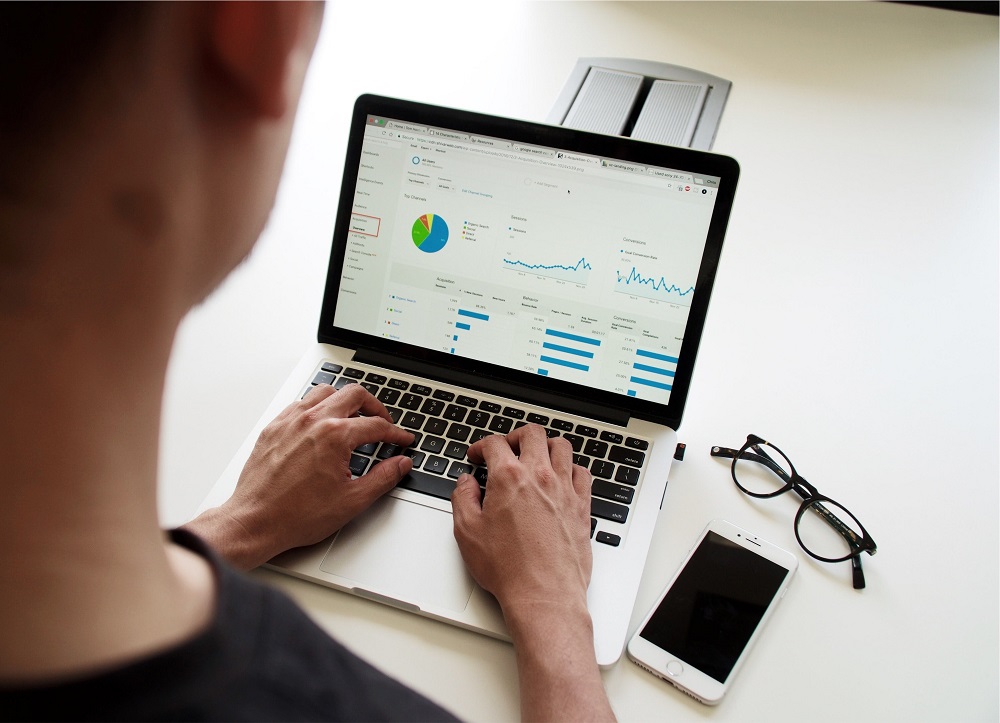Marketers today must adapt quickly to the shifting preferences of their customers; therefore, they are relying more and more on data-driven marketing strategies. Marketers can gain more useful insights from data analytics by utilizing information gleaned via consistent communication with customers, which is made possible by insight-driven marketing. It enhances efficiency and helps make the most of digital advertising campaigns.
Data analytics provides a feedback loop on a marketing strategy's progress. With this information, business owners can make course corrections, shift priorities, and reallocate resources. It can also serve as a predictor, drawing on historical information to speculate on the likely success of a strategy or estimate the likely return on investment.
Using data analysis in content marketing helps provide material that will resonate with and persuade your intended audience.
Data analytics has become essential for businesses to improve their marketing strategies. With the rise of technology and the internet, companies now have access to vast amounts of data that can be analyzed to extract valuable insights. These insights can be used to optimize marketing campaigns, target the right audience, and measure the effectiveness of marketing efforts. In this blog, we'll explore how data analytics can improve marketing strategies.

Ways Data Analytics can improve marketing strategy.
Define Your Marketing Objectives
The first step in using data analytics to improve marketing strategies is to define your marketing objectives. What do you want to achieve through your marketing efforts? Is it to increase brand awareness, generate leads, or drive sales? Once you have defined your marketing objectives, you can use data analytics to measure your progress toward achieving these objectives.
For example, if your marketing objective is to generate leads, you can use data analytics to track the number of leads generated from your marketing campaigns. You can analyze the data to identify which campaigns generate the most leads, which channels drive the most traffic, and which messaging resonates the most with your audience.
Identify Target Audience
You can identify your target audience and their behavior patterns, preferences, and interests using the data collected. This information can then be used to create targeted and personalized marketing campaigns.
For instance, if your data shows that your target audience is primarily active on Instagram and responds well to video content, you may want to focus your marketing efforts on creating Instagram videos that showcase your product or service. Alternatively, your data shows that your target audience primarily accesses your website from mobile devices. In that case, you can optimize your site for mobile and focus on mobile-specific marketing channels such as SMS marketing.

Collect and Analyze Data
The next step is to collect and analyze data. There are many sources of data that you can use to improve your marketing strategies, including website analytics, social media analytics, email marketing analytics, and customer data.
For example, website analytics can provide valuable insights into how visitors interact with your website. You can analyze data such as bounce rates, time spent on the site, and conversion rates to identify areas for improvement.
Social media analytics can provide insights into which social media platforms your audience uses and how they interact with your content. You can analyze engagement rates, reach, and demographics to optimize your social media marketing campaigns.
Email marketing analytics can provide insights into how subscribers engage with your emails. You can analyze data such as open rates, click-through rates, and conversion rates to identify areas for improvement.
Customer data can provide insights into customer behavior and preferences. You can analyze purchase history, demographics, and feedback to identify opportunities for cross-selling, upselling, and improving customer retention.
Use Data to Optimize Marketing Campaigns
Once you have collected and analyzed data, you can use it to optimize your marketing campaigns. You can use data to refine your targeting, messaging, and channel selection to improve the effectiveness of your campaigns.
For example, suppose your data analysis shows that a particular social media platform drives the most traffic to your website. In that case, you can focus your social media marketing efforts on that platform. If your data analysis shows that a particular message resonates the most with your audience, you can use that messaging in future marketing campaigns.

Measure and Monitor Results
Finally, measuring and monitoring your marketing efforts results is essential. You can use data analytics to track key performance indicators (KPIs) such as website traffic, leads generated, sales, and customer engagement.
By measuring and monitoring results, you can identify areas for improvement and adjust your marketing strategies accordingly. For example, suppose your KPIs show that your marketing efforts are not generating the desired results. In that case, you can adjust your targeting, messaging, and channel selection to improve the effectiveness of your campaigns.
Restructure their Customer Persona
Data analytics can help businesses to gain deeper insights into their target audience by analyzing customer behavior, demographics, preferences, and purchase history. By restructuring their customer persona, marketers can create a more accurate picture of their ideal customers and tailor their marketing efforts to reach them more effectively.
For example, a company that sells fitness products may use data analytics to determine that its primary customer base comprises women aged 18-35 who live in urban areas and are interested in wellness and fitness trends. They can then use this information to create targeted marketing campaigns and promotions that speak directly to this demographic.
Improve Customer Journey
Data analytics can help businesses better understand the customer journey, from initial awareness to final purchase, by tracking customer interactions across multiple channels and touchpoints. By analyzing this data, marketers can identify areas of the customer journey where customers are experiencing challenges or drop-offs and take steps to address these issues.
For example, a business may use data analytics to identify that many customers abandon their shopping cart before completing a purchase. They can then use this information to change the checkout process, such as simplifying the form or offering a discount code to encourage customers to complete their purchases.

Create Personalized Marketing Campaigns
Data analytics can also help businesses create personalized marketing campaigns tailored to individual customers' unique needs and preferences. Marketers can identify patterns and trends that indicate customer interests, behaviors, and purchase history by analyzing customer data. They can then use this information to create targeted promotions and content more likely to resonate with individual customers.
For example, an online retailer may use data analytics to identify that a specific customer frequently purchases sports equipment. They can then send personalized customer emails featuring new products in the sports equipment category or offer them a special discount on their next purchase.
Tips for Using Data Analytics to Improve Marketing Strategies
Data analytics is a powerful tool for businesses looking to improve their marketing strategies. By focusing on the right metrics, using A/B testing, investing in data visualization tools, being mindful of data privacy and protection, embracing predictive analytics, continuously monitoring and adjusting your strategies, and using data to personalize your marketing, you can drive better results and stay ahead of the curve in an increasingly data-driven world.
Here are some tips for using data analytics to improve marketing strategies:
Focus on the right metrics.
When collecting and analyzing data, it's important to focus on the metrics that matter most to your marketing objectives. For example, if your goal is to increase sales, you should focus on metrics such as conversion rates, average order value, and customer lifetime value.
Use A/B testing
A/B testing is a powerful tool for optimizing marketing campaigns. By testing different campaign variations (such as different headlines, images, or calls to action), you can identify which version is most effective at achieving your marketing objectives.

Invest in data visualization tools.
Data visualization tools like dashboards and infographics can help you quickly identify trends and insights from your data. This can save you time and help you clearly and concisely communicate your findings to stakeholders clearly and concisely.
Be mindful of data privacy and protection.
As mentioned earlier, with the increasing use of data analytics for marketing, there is growing concern about data privacy and protection. Businesses must ensure they collect, store, and use data in compliance with data protection laws and regulations.
Embrace predictive analytics
Predictive analytics is a powerful tool for identifying future trends and opportunities. By analyzing historical data and using machine learning algorithms, you can predict which marketing campaigns will most likely succeed and focus your efforts accordingly.
Continuously monitor and adjust your strategies.
Data analytics is not a one-time effort - it requires ongoing monitoring and adjustment. Tracking key metrics and adjusting your marketing strategies based on your findings can help you stay ahead of the curve and drive better results over time.
Use data to personalize your marketing.
Finally, one of the most powerful ways to use data analytics in marketing is to personalize your campaigns. You can increase engagement and drive better results by analyzing customer data and tailoring your messaging to individual customers.
Trends in Data Analytics for Marketing
As technology continues to evolve, there are several marketing data analytics trends that businesses should be aware of. These trends include:
- Artificial intelligence (AI) and machine learning - AI and machine learning are becoming increasingly important in data analytics for marketing. These technologies can analyze vast amounts of data quickly and identify patterns that humans may miss.
- Predictive Analytics - Predictive analytics uses data, statistical algorithms, and machine learning techniques to identify the likelihood of future outcomes based on historical data. This technology is becoming increasingly important in marketing as it can be used to predict which marketing campaigns are most likely to be successful.
- Data visualization - Data visualization tools, such as dashboards and infographics, are becoming increasingly popular in data analytics for marketing. These tools can help businesses quickly identify trends and insights from data.
- Privacy and data protection - With the increasing use of data analytics for marketing, there is growing concern about data privacy and protection. Businesses must ensure they collect, store, and use data in compliance with data protection laws and regulations.

How Data Analytics Drives Marketing Success
Data analytics can drive marketing success in several ways:
Targeted Marketing
Data analytics helps identify and understand your target audience, their preferences, and behavior patterns. This information can be used to create targeted and personalized marketing campaigns that resonate with your audience, resulting in higher engagement rates and conversions.
Improved Customer Experience
Data analytics allows businesses to gain insights into customer needs and preferences, which can be used to improve the customer experience. For example, by analyzing customer feedback, businesses can identify areas of improvement and make necessary changes to provide a better experience.
Optimized Campaigns
Data analytics helps businesses optimize their marketing campaigns by identifying the most effective strategies and improving overall campaign performance. For example, by analyzing website analytics data, businesses can identify which pages drive the most traffic and conversions and optimize those pages for even better results.
Predictive Analytics
Data analytics can also be used to predict future trends and behaviors. This can help businesses stay ahead of the competition and adjust their marketing strategies accordingly.
Increased ROI
By leveraging data analytics to create targeted, personalized, and optimized campaigns, businesses can achieve a higher return on investment (ROI) in their marketing efforts. This is because they are targeting the right audience with the right message and continuously using data-driven insights to improve campaign performance.
Improved Decision Making
Data analytics can help businesses make more informed decisions by providing insights into what is and isn't working. Businesses can identify patterns and trends that inform their marketing strategy by analyzing data from various sources.
Cost Savings
Data analytics can help businesses save money on marketing expenses by identifying the most effective channels and strategies. Businesses can reduce wasteful spending on ineffective tactics by focusing on the most effective channels and campaigns.

Competitive Advantage
Businesses can gain a competitive advantage over their rivals by using data analytics to inform their marketing strategies. By staying ahead of industry trends and understanding customer needs and preferences, businesses can create more effective campaigns that resonate with their target audience.
Real-Time Optimization
With the help of real-time analytics tools, businesses can monitor their campaigns in real-time and make necessary adjustments on the fly. This allows businesses to react quickly to changes in customer behavior or industry trends and adjust their marketing strategies accordingly.
Enhanced Collaboration
Data analytics can also enhance collaboration between different departments within a business. By sharing insights and data across teams, businesses can improve communication and work together to create more effective marketing campaigns.
Data analytics is a crucial tool for businesses looking to drive marketing success. Businesses can create targeted and personalized campaigns that resonate with their target audience by providing insights into customer behavior and preferences. By optimizing their campaigns and staying ahead of industry trends, businesses can achieve a higher return on investment and gain a competitive advantage over their rivals.
Also, Read - Why Marketing Analytics Matter to Your Business?
Conclusion
Data analytics is essential for businesses looking to improve their marketing strategies. By defining clear marketing objectives, collecting and analyzing data, using data to optimize marketing campaigns, and measuring and monitoring results, businesses can identify opportunities for improving their marketing efforts. With the increasing use of technologies such as AI, machine learning, and predictive analytics, data analytics will continue to play a crucial role in marketing for years.
Finally, with the increasing use of data analytics for marketing, there is growing concern about data privacy and protection. Businesses must ensure they collect, store, and use data in compliance with data protection laws and regulations. This may include obtaining explicit consent from customers before collecting their data, implementing robust data security measures, and only collecting the data necessary to achieve your marketing objectives.
Marketing analytics services from SG Analytics deliver precise and important data to help you optimize your go-to-market and product launch plans, capitalize and expand into new markets, and maximize salesforce potential. Get the most out of social media data by utilizing our monitoring services to gain insights about your customers and competitors.









